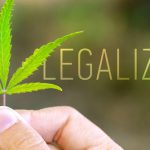It is time to end the war on drugs and the social ailments that comes with it: crime, health issues, homelessness and premature deaths. We have the means to accomplish this, just legalize drugs and treat it as the health issue it is, which addiction is.
In 2001, Portugal decriminalized drugs much to the consternation of its critics and the warnings of chaos and ruin. However, in the 17 years since, Portugal has seen a drop in first-time users, especially in the 15- to 24-year age group, a decline in overall usage, a sharp decline in drug-related deaths and HIV infections, and a decline in imprisonment. Portugal also moved its drug control from law enforcement and the Justice Department to its Ministry of Health and created a public health model for treating drug addiction.
We have alcohol, gambling and other addictions, which are treated as health problems. This is where our money should be spent, which would create jobs and stop most drug-related crimes, and result in saving money by not tying up the court system, reduce overcrowding in jails, and reduce the workload of law enforcement while saving lives.
A couple of years ago, the Lancet and Johns Hopkins University reported that when Portugal and the Czech Republic decriminalized non-violent drug offenses, the results showed compelling health benefits, saved money and did not promote drug use. In another article, the former presidents of Mexico, Brazil and Colombia all said the war on drugs was “an unmitigated disaster.” The only thing the prohibition did was to make organized crime families and private prison industries wealthier, but did not help the afflicted.
The prohibition of alcohol did not stop the consumption of alcohol, but drove the production of it underground. Today, while legal, it still kills both the drinker and those unfortunate enough to be in their driven path.
The most recent reports show that Australia, Canada, Chile, Colombia, Costa Rica, India, Israel, Jamaica, Mexico, the Netherlands, South Africa, Spain, Uruguay, and the Czech Republic are following the trail led by Portugal.
If we were to legalize cannabis/drugs, where would the push back come from? Follow the money and it will lead you to drug cartels, the private prison industry, most law enforcement agencies that benefit from asset forfeiture laws, drug companies, religious and rehab organizations, and politicians who worry about their next election. A platform of crippling the drug cartels, saving lives, stopping most related crimes and a lot of homelessness looks like a candidate I would vote for.
The modern-day policing was founded in 1829 by Sir Robert Peel, whose policing principles included preventing crime, not catching criminals. “If the police stop crime before it happens, we don’t have to punish citizens or suppress their rights. An effective police department doesn’t have high arrests stats; its community has low crime rates.”
There is a large and growing coalition among law enforcement who organized to bring about a change in our drug laws. Law Enforcement Action Partnership (L.E.A.P.) is a group of more than 5,000 former police, judges, prosecutors, and other criminal justice professionals and more than 100,000 supporters as of 2017 using their expertise to find solutions to our country’s drug problem while enhancing public safety.
L.E.A.P.’s initial focus was on ending the war on drugs, but has expanded to include improving police-community relations, reducing crime and violence associated with the war on drugs, reducing and finding alternatives to incarceration, improving public health policies to lessen the negative social and physical consequences associated with drug abuse.
We have the answer to this problem, but do we have the public and political will to do so? It is time for a change. What we are doing is not working and is, instead, promoting a killing field of our young.
(320)





Leave A Reply